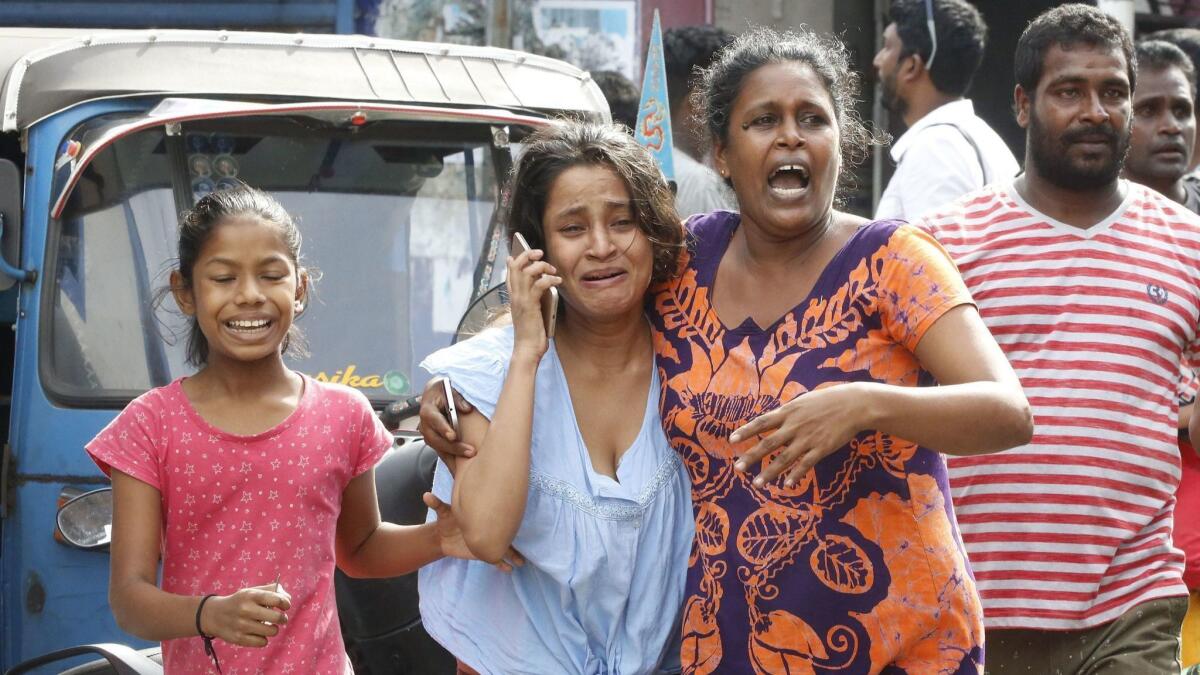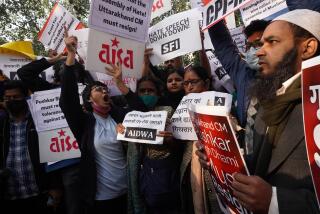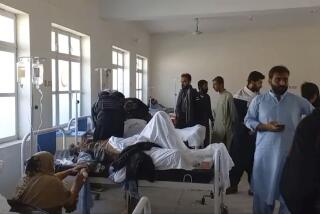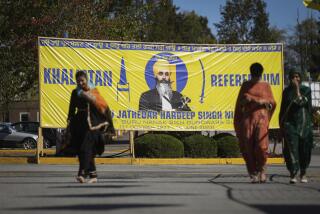What is National Thowheeth Jamaath? Obscure Islamist group blamed for Sri Lanka bombings

Even for experts on terrorist organizations, National Thowheeth Jamaath is far from a household name.
“We know very, very little about them,” said Ajai Sahni, who runs the South Asia Terrorism Portal, which tracks extremist groups in the region. “Other than the fact they are a fundamentalist Islamist organization, they have no background, in my mind, in terrorism.”
Sri Lanka’s government on Monday blamed the obscure group for a coordinated series of suicide bombings at churches and five-star hotels on Easter Sunday that killed at least 310 people.
Officials said they were investigating whether the group had help from international terrorist networks. No one has claimed responsibility for the attacks.
If National Thowheeth Jamaath is proved to be involved, it would be a huge leap for an organization that had been associated primarily with hate speech and defacing icons of Buddhism, the island nation’s predominant religion.
The group is believed to be an offshoot of another organization, Sri Lanka Thowheeth Jamaath, whose members first came into public view in 2013 when they were charged with inciting religious hatred for a video that described Buddha as a carnivore and ridiculed the faith.
Six members were arrested on charges of blasphemy, but later apologized and were eventually released.
Sri Lanka Thowheeth Jamaath was also reportedly linked to the vandalism of Buddhist statues in the town of Mawanella in December. A group of young men arrested in the case were said to have been students of an Islamic teacher, Mohammed Zahran, who had caught the attention of intelligence officials.
Three years ago, Hilmy Ahamed, vice president of the Muslim Council of Sri Lanka, warned national security officials that Zahran was using the cover of religious schools to preach violent messages to young Muslims, including calls to kill non-Muslims.
But security officials didn’t take tough action, he said.
“They claimed they couldn’t trace him,” Ahamed said. “I don’t think they put in enough effort.”
L.A. archbishop on Easter Sunday bombings in Sri Lanka: ‘Only love can conquer evil and violence’ »
Zahran’s speeches were published on YouTube and Facebook, but Ahamed said officials with Sri Lanka’s cybercrimes police unit and telecommunications regulatory bodies each told him the matter was not in their jurisdiction.
Zahran’s name appears on a document sent by Sri Lanka’s police chief to intelligence officials this month, warning of a plan to attack churches and the Indian High Commission in Colombo. That document — tweeted on Sunday by Telecommunications Minister Harin Fernando — also names National Thowheeth Jamaath.
Sri Lankan Prime Minister Ranil Wickremesinghe has blamed the president, Maithripala Sirisena, who is responsible for the police and security forces, for failing to act on intelligence about a possible attack. Sirisena has not responded to the allegations but appointed a committee on Monday to investigate the attacks.
Many Sri Lankans — having lived through a 26-year civil war that saw large-scale violence between government forces and ethnic Tamil rebels — are skeptical of the government’s claim that the group was behind the bombings.
“Even during the war we didn’t see such coordinated attacks on multiple locations,” Ahamed said. “For amateurs like Zahran to do a mass-scale operation is almost impossible.”
Sahni, of the South Asia Terrorism portal, said there was little in the Islamic group’s history to suggest it would attack Christians, who make up less than 10% of the population, or five-star hotels, where dozens of foreigners were among the dead. Those targets suggest the attacks were also aimed at gaining international attention.
“There is no real history of significant Christian-Muslim conflict in Sri Lanka. Both are minorities,” Sahni said.
“Suddenly we are being told these are jihadis and some kind of a monstrous organization that has gone out and killed 290 people. I find much of the narrative the government is giving out to be extremely problematic.”
More to Read
Start your day right
Sign up for Essential California for news, features and recommendations from the L.A. Times and beyond in your inbox six days a week.
You may occasionally receive promotional content from the Los Angeles Times.







